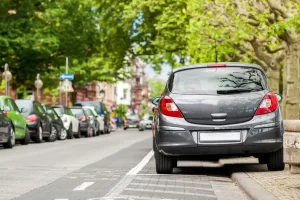Honda Pilot Engine Failures Under Federal Investigation

More than 200 complaints about engine failure in the Honda Passport have been reported. Photo: Honda
The Honda Pilot is a fairly inoffensive crossover that does a good job of getting you from A to B. Well, until the stop/start feature messes up and kills your engine, then it’s less good at getting you to your destinations. It turns out that enough people have run into this particular problem for U.S. safety regulators to launch an investigation into the issue.
This week, the National Highway Traffic Safety Administration (NHTSA) announced an investigation into engine failures on Honda’s Pilot crossover after it received more than 200 complaints that the motors were cutting out. According to regulators, the Office of Defects Investigation (ODI) received 221 complaints alleging an issue with the auto start/stop feature on 2016-2019 Honda Pilot cars.
The problems all relate to the auto stop/start feature some Honda cars have to help improve fuel efficiency. Under certain conditions, the engine will cut off when the car comes to a complete stop. The engine is automatically restarted when the driver releases the brake pedal after a stop.
But some consumer reports and field testing carried out by the NHTSA alleged that the engine failed to restart on its own from a complete stop.
The stop/start engine issue affects models from 2016 to 2019. Photo: Honda
The NHTSA said in a release:
“The complaints allege that the engine fails to restart on its own from a complete stop at a traffic light or road intersection with the Auto Start/Stop function engaged. Some of the complainants allege that a jump was required for the vehicle to restart.”
The issue is said to affect models equipped with the 3.5-liter engine coupled with a nine-speed automatic transmission. What’s more, legislators warned the the defect could also affect Honda Odyssey, Acura TLX and Acura MDX vehicles fitted with the same 3.5L engine and nine-speed automatic transmission.
In order to try and uncover a fix for the issue, the ODI has met with Honda “on various occasions” and “found a correlation” with customer concerns for the defect. As a result, the NHTSA will open preliminary evaluations of the issue to “determine the scope and severity of the potential problem” and assess any safety-related issues.
According to documents released by the NHTSA, the issue could affect up to 194,731 cars in the U.S.





